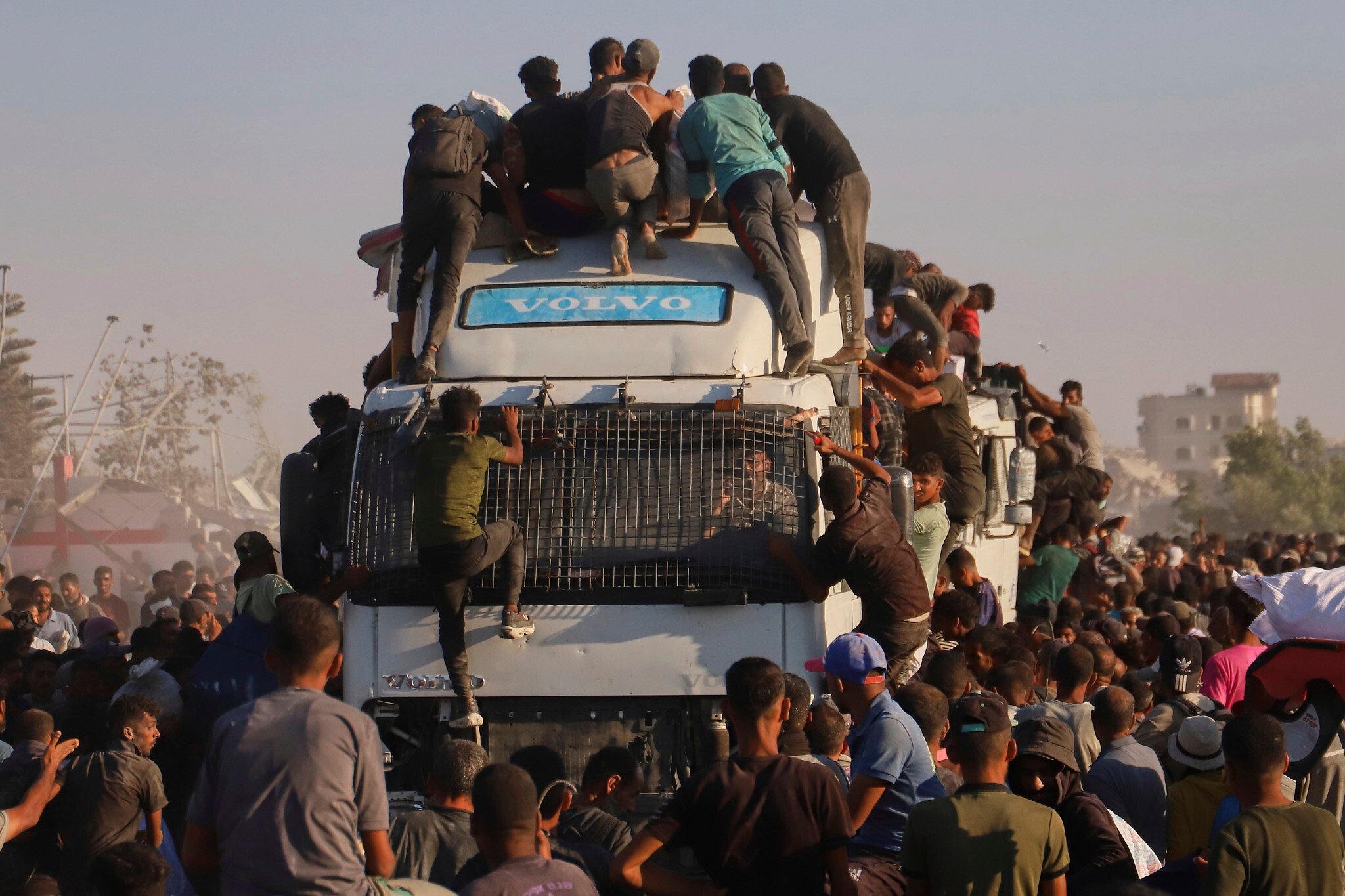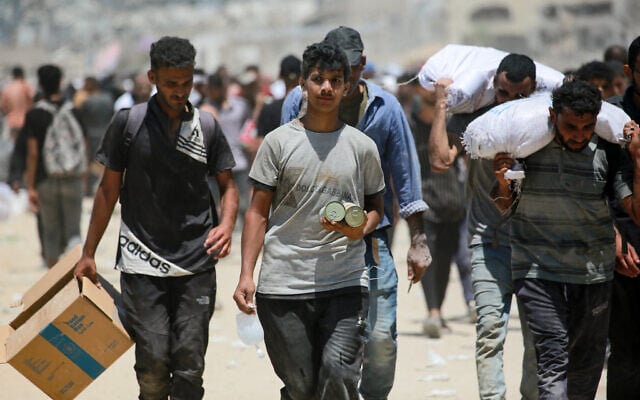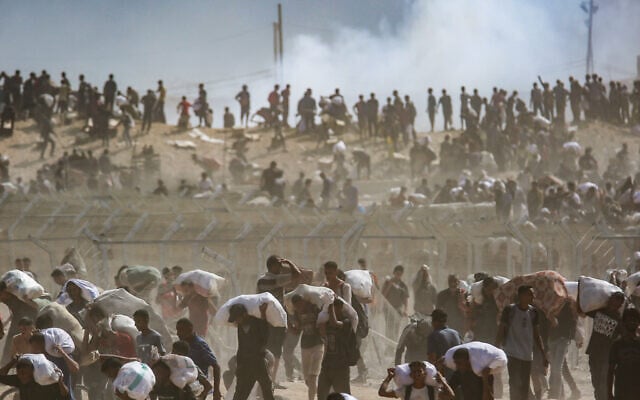



Almost nine out of every 10 UN trucks that entered Gaza with humanitarian aid over the last several months were looted — either by hungry Gazans or by armed groups — before reaching their destination, according to United Nations statistics.
The figures were released amid a push by Israel and allies to surge humanitarian aid into the enclave, including through ten-hour daily pauses in combat operations in parts of the Strip, airdropping operations, and new corridors on the ground for aid’s distribution.
Israel denies any policy to deprive Gazans of food and blames the UN and other groups on the ground for failing to effectively distribute the aid that’s entered the Strip; still, Jerusalem acknowledges that many Gazan civilians face hunger, some twenty-two months into Israel’s ongoing war to defeat the Hamas terror group and free the hostages it took captive on October 7, 2023.
Since the May resumption of humanitarian aid deliveries to Gaza after a two-month Israeli blockade, a total of 2,604 aid trucks have been collected by the UN. Of those, 2,309 — 88% — did not reach their intended destinations inside the Strip, according to the United Nations Office for Project Services.
According to the organization, this was due to the trucks being “intercepted either peacefully by hungry people or forcefully by armed actors during transit in Gaza.”
According to UNOPS, in June, 1,155 trucks were collected by the UN and its partner organizations after crossing into Gaza, and 1,048 of them — 90.7% — were intercepted before reaching their destinations. In July, the figure rose to 94%, with 1,161 trucks collected and 1,093 intercepted.
Olga Cherevko from the UN Office for the Coordination of Humanitarian Affairs clarified to The Times of Israel that the vast majority of looting is being carried out by hungry Gazans, not by armed gangs.
“The long-standing restrictions on the entry of aid have created an unpredictable environment where there is a lack of confidence by the communities that aid will reach them,” she said.
“This has resulted in many of our convoys offloaded directly by starving, desperate people as they continue to face deep levels of hunger and are struggling to feed their families,” the UN staffer continued.
“As we have said before, the only way to reach a level of confidence is by having a sustained flow of aid over a period of time. This was clearly evident during the weeks of the last ceasefire when such incidents did not occur,” she added.
Israel says that Hamas steals supplies from deliveries by the UN and international aid groups. The US- and Israel-backed Gaza Humanitarian Foundation (GHF), established to provide aid via an alternative that would keep goods out of Hamas’s hands, has been plagued by near-daily shooting incidents that have seen hundreds killed as they try to reach the GHF distribution centers.
Israel, in response to a rising international uproar over the humanitarian situation in the Strip, announced last week steps to let more aid reach Gaza, including pausing fighting for part of the day in some areas, approving air drops by foreign nations, and announcing protected routes for aid convoys.
Israel also announced Tuesday it will gradually permit the entry of goods into Gaza through the private sector for the first time in almost a year, adding another channel for supplies to arrive alongside the aid organizations already operating.
Gaza’s Hamas-run health ministry said Monday evening that five people died of starvation or malnutrition over the previous 24 hours. The new deaths raised the alleged toll of those dying from hunger to 180, including 93 children, since the war began. Hamas figures cannot be verified, and the group does not distinguish between civilians and fighters.
The war in Gaza began on October 7, 2023, when thousands of Hamas-led terrorists invaded Israel, killing some 1,200 people and taking 251 hostages, of whom 50 — 20 of whom are believed to be alive — are still held in the Strip.


